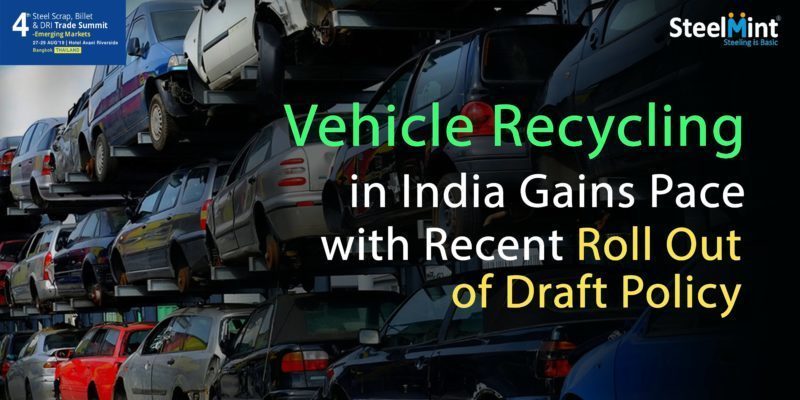
In a move that aims to spur growth of vehicle recycling agencies across the country and increase adoption of electric vehicles, the Ministry of Road Transport and Highways (MoRTH) has proposed a draft notification for scrappage of vehicles older than 15 years. It proposes to provide benefits ranging up to INR 40,000 on new purchases after scrappage of the old vehicle of a similar category. Thus, buying a new vehicle might just become cheaper in India, giving slight relief to automakers suffering from dwindling auto demand in the country.
It has invited suggestions within 30 days after which the amended draft rules shall be taken into consideration.
The Ministry of Road Transport and Highways has issued the draft amendment of the Central Motor Vehicle Rules, 1989, for public consultation, which proposes the key points below:
1. Frequent renewal of fitness certificate: Fitness certificates for transport vehicles will have to be renewed in respect of transport vehicles older than 15 years more frequently – every six months against one year under the current norms. It is every 2 years for vehicles up to 8 years old and every year for vehicles that are older than 8 years and up to 15 years old.
2. Waiving of registration fees with scrappage certificate: Buyers of newly-purchased vehicles would not have to pay registration fees if they present a scrapping certificate of a previously-owned vehicle of the same category issued by an authorised scrapping centre/agency, and the scrapping certificate has not been utilised for any other such cases in the past.
3. Revision in fees of renewal of certificate: For conducting test and grant and renewal of certificates of fitness with newer registration marks for motor vehicle more than 15 years, it has proposed increased fees.
4. The government is also working on an information technology to prevent usage of duplicate scrapping certificates.
5. The road ministry is likely to take up the proposals of taxation benefits for scrapping centres with the proposal of rationalisation of the input tax credit regime under GST for scrapping centres.
Why is there a need for such a policy?
The policy majorly focuses on three areas. One is curbing vehicular pollution by scrapping old commercial vehicles more than 15 years that emit toxic gases into the environment. Secondly, it aims to speed up the generation of domestic scrap that could meet the increasing demand in the market. Thirdly, lowering the dependence on scrap imports.
India presently imports around 5 MnT of steel scrap per annum. India’s total domestic steel scrap demand is likely to double to around 48-52 MnT by 2030, as per government sources.
In order to know more about India’s vehicle recycling, book your seat at SteelMint’s 4th Steel Scrap, Billet & DRI Trade Summit. The conference is being organised during 27-29th August, 2019 in Bangkok, Thailand.


